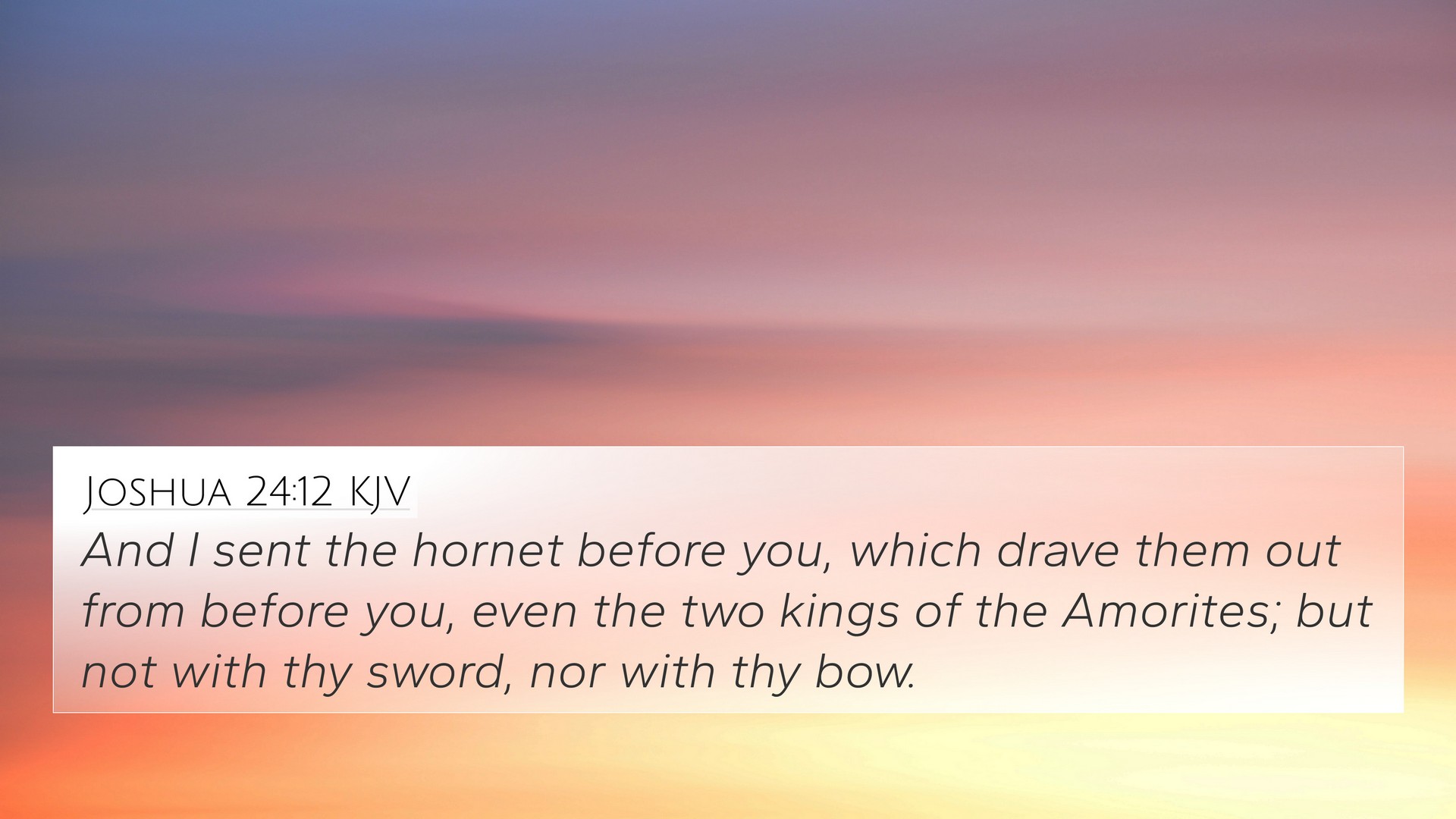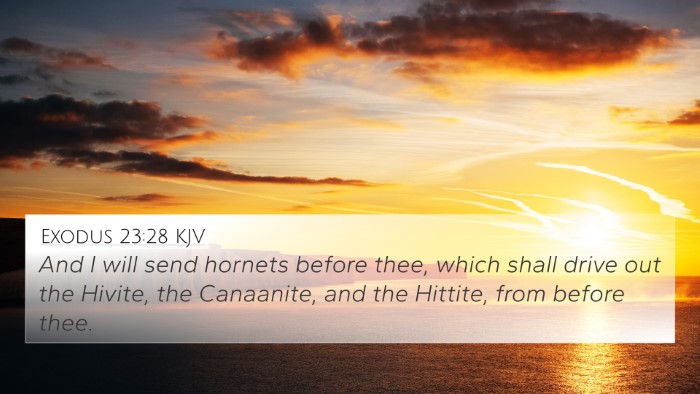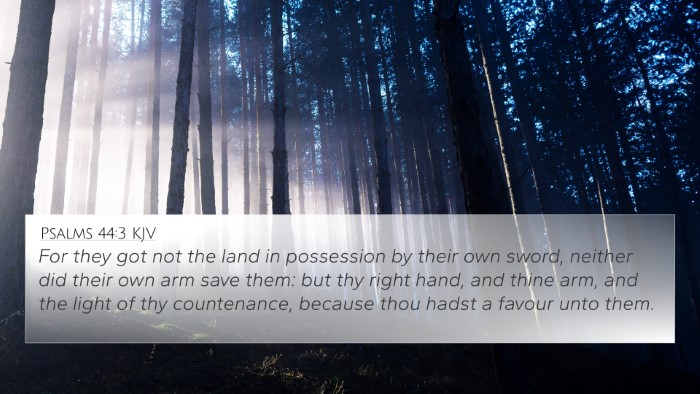Understanding Joshua 24:12
Joshua 24:12 states, "And I sent the hornet before you, which drove them out from before you, even the two kings of the Amorites; but not with your sword, nor with your bow." This verse reveals powerful insights into God's divine assistance in the conquests of Israel. The use of the hornet signifies an unseen force that effectively drives out adversaries, emphasizing that successes come not solely through human effort but through divine intervention.
Theological Significance
From a theological standpoint, this verse highlights the tension between divine sovereignty and human agency. Matthew Henry notes that God employs natural and supernatural means to accomplish His purposes. The hornet symbolizes God's active role in making a way for His people, which can be interpreted as a reflection of spiritual warfare even today.
Commentary Insights
- Matthew Henry: He interprets the hornet as a representation of the fears and disturbances that God sends to His enemies. It showcases how God can use fear to secure victory on behalf of His people.
- Albert Barnes: Barnes discusses how this illustrates God's power over nature, indicating that divine means supersede human military tactics, ultimately teaching reliance on God rather than personal prowess.
- Adam Clarke: Clarke emphasizes that the mention of "kings" signifies not only literal rulers but also represents the strongholds of sin and opposition faced by believers, served to illustrate the ultimate triumph of faith.
Practical Application
This verse encourages believers to recognize the means by which God works in their lives today. Understanding that victory is not attained solely through our abilities serves to foster humility and reliance on God's strength. In times of challenge, reflecting on God's past assistance can bolster faith and inspire action.
Cross-References for Joshua 24:12
Several other Bible verses relate to the themes found in Joshua 24:12, enhancing the thematic connections within Scripture:
- Exodus 23:28: "And I will send hornets before you, which shall drive out the Hivite, the Canaanite, and the Hittite from before you." This verse parallels the concept of God using supernatural means to ensure victory.
- Deuteronomy 7:20: "Moreover, the Lord your God will send the hornet among them until those who are left, who hide themselves from you, are destroyed." Here, God’s active participation in Israel’s conquests is affirmed.
- Judges 2:1-3: "And the angel of the Lord went up from Gilgal to Bochim, and said, 'I brought you up from Egypt...'" This highlights the ongoing divine initiative in the life of Israel.
- 1 Samuel 17:47: "For the battle is the Lord's, and He will give you into our hands." This reaffirms the notion that God directs the outcomes of confrontations.
- Psalm 44:3: "For they did not gain possession of the land by their own sword, nor did their own arm save them; but it was Your right hand, Your arm, and the light of Your countenance, because You favored them." This echoes the truth found in Joshua 24:12.
- 2 Chronicles 20:15: “...Do not be afraid nor dismayed because of this great multitude, for the battle is not yours, but God's.” A reminder of dependence on divine aid in warfare.
- Romans 8:31: "If God is for us, who can be against us?" Suggesting that faith in God guarantees divine support in all endeavors.
Conclusion
In studying Joshua 24:12 through various commentaries and cross-referencing with other biblical texts, it becomes apparent that reliance on divine assistance is central to understanding God’s work in the world. The connections between these scriptures reveal foundational truths about God’s sovereignty and His commitment to His people. Engaging with these insights fosters a deeper understanding of how God works in the lives of believers, encouraging a faith that recognizes His omnipotence.
If you find yourself seeking biblical truths, consider using tools for Bible cross-referencing, such as a Bible concordance or cross-reference Bible study materials, to deepen your understanding and connect scriptures meaningfully.





